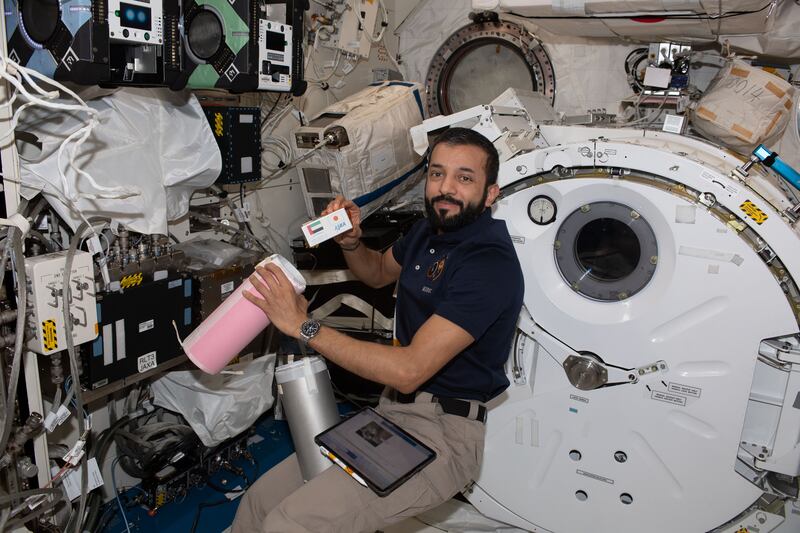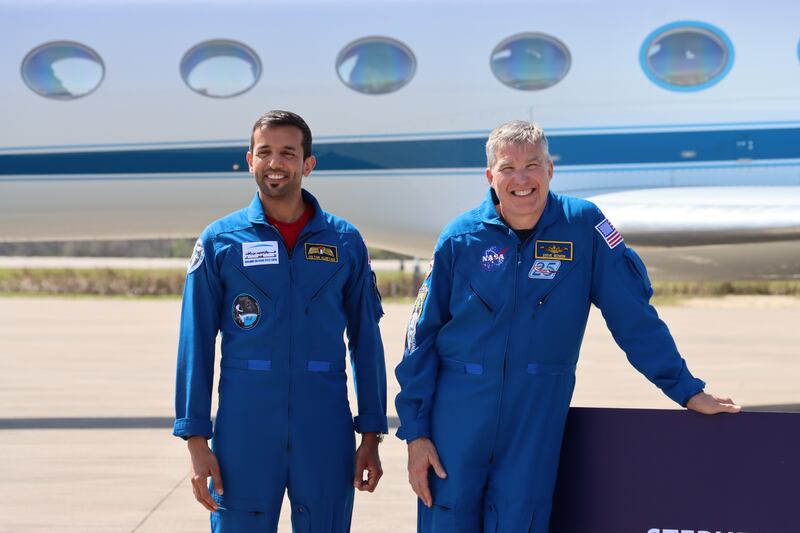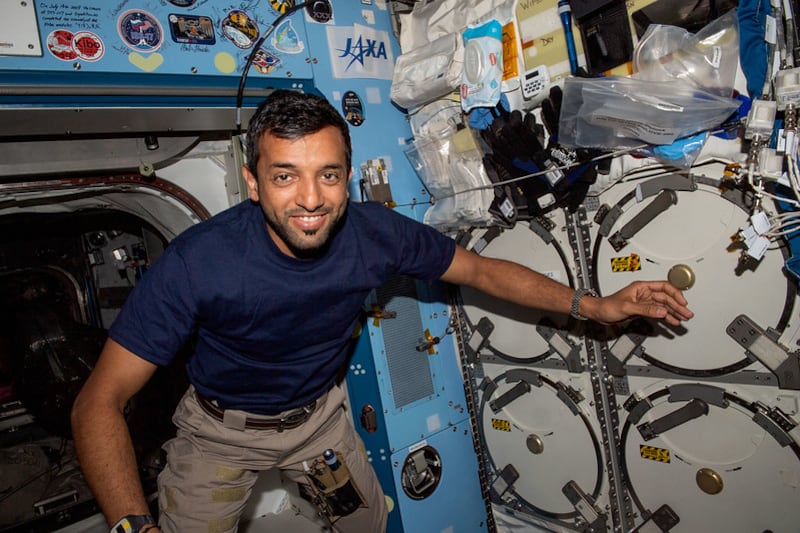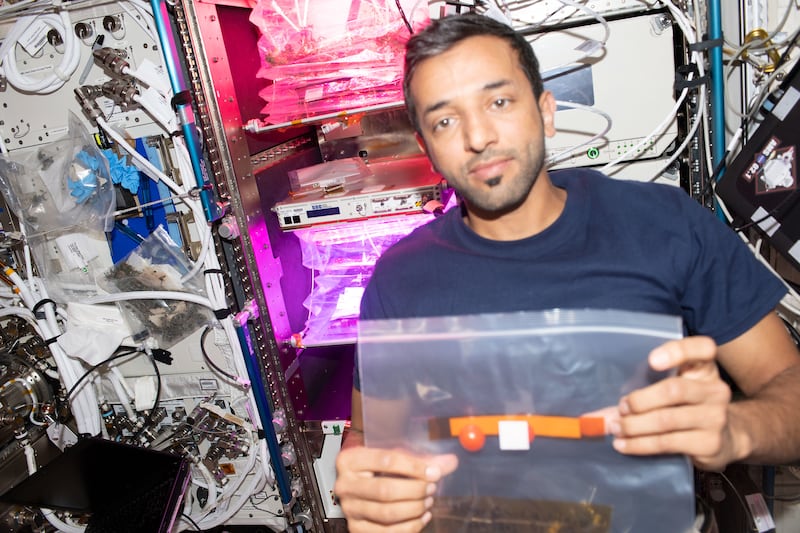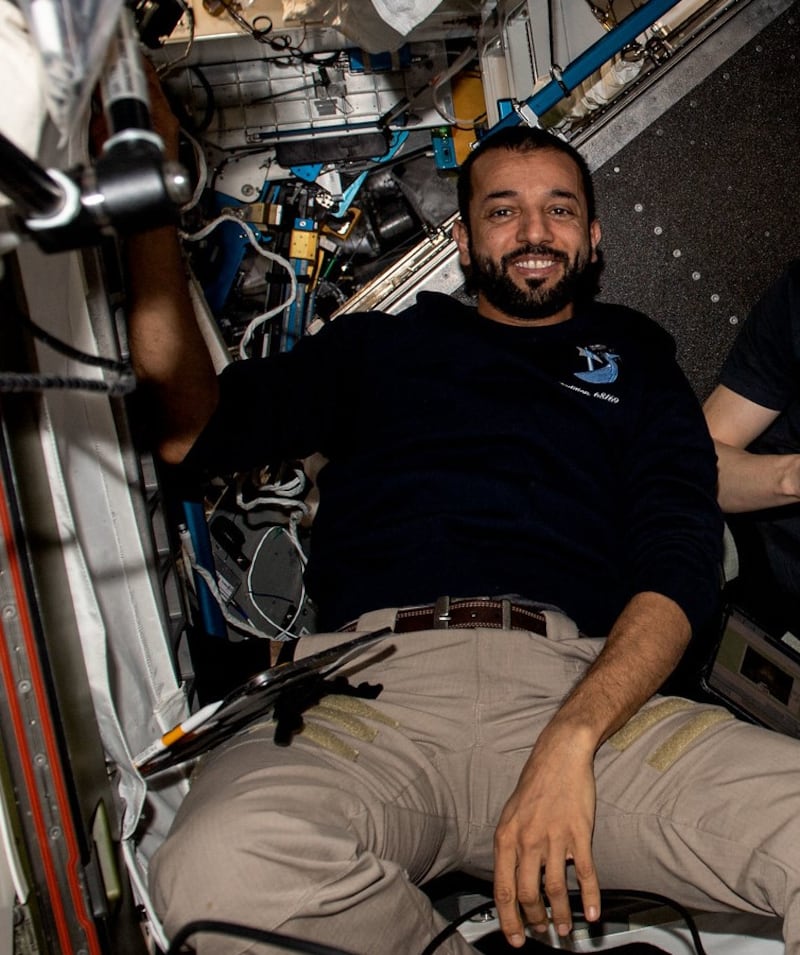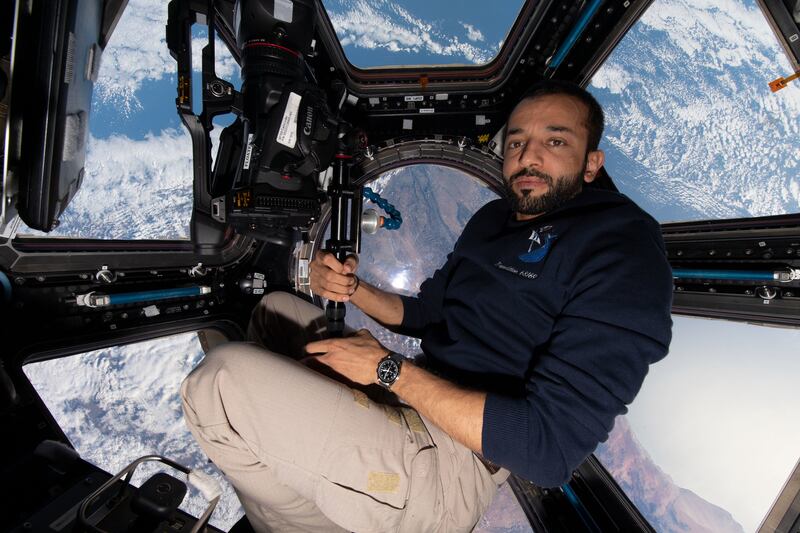Emirati astronaut Sultan Al Neyadi will lead efforts to advance healthcare from space after embarking on a crucial experiment aimed at supporting treatment for heart conditions and epilepsy.
Dr Al Neyadi's research – which is the result of a partnership between the Mohammed Bin Rashid Space Centre and Japan's Aerospace Exploration Agency – has been hailed as a "significant achievement" for the UAE space sector.
The Protein Crystal Growth Experiment will focus on a protein molecule – known as GIRK2 – which is key to controlling the heart rate and is linked to a number of serious conditions, including epilepsy and cardiac arrhythmia.
The work being carried out on the International Space Station aims to further understanding of the molecule's structure in order to develop targeted care plans.
“This initiative represents a significant achievement in the UAE's contribution to global space science," said Adnan Al Rais, manager of the UAE Astronaut Programme on Thursday.
"It underscores our commitment to strengthening international scientific partnerships and propelling our understanding of complex biological systems for the betterment of humanity.”
The study, which is now under way, was proposed by a research team from the Mohammed Bin Rashid University of Medicine and Health Sciences in collaboration with the Harvard Medical School in the US.
It is part of an agreement between MBRSC, Jaxa and the UAE Space Agency.
Dr Al Neyadi has played a key role in preparation for the experiment by installing protein samples in the Kibo module on board the orbiting laboratory.
Samples are set to be sent back to Earth in about one month for further analysis.
Historic space mission
Dr Al Neyadi, 42, arrived at the orbiting outpost on March 3 to carry out the Arab world's first long-duration space mission.
In his three months in orbit, he has become the first Arab to perform a spacewalk, carried out a series of other science investigations for researchers around the world and conducted several live calls with pupils and space enthusiasts.
Dr Al Neyadi is participating in more than 200 experiments assigned to him and his colleagues by Nasa and 19 others given to him by UAE universities.
Some of his research work so far has involved life sciences, including wearing a bio-monitor vest and headband, to allow scientists on the ground to monitor his cardiovascular system while he works in microgravity.
The research would help scientists study the effects of microgravity on a human heart, and potentially help create therapies for heart diseases.
Dr Al Neyadi also assisted Saudi astronaut Rayyanah Barnawi with a space biology experiment.
The two Arab astronauts treated human cell samples and studied their inflammatory response to microgravity.
Dr Al Neyadi has participated in several human research activities, including ultrasound scans, vision checks, and hearing exams.
